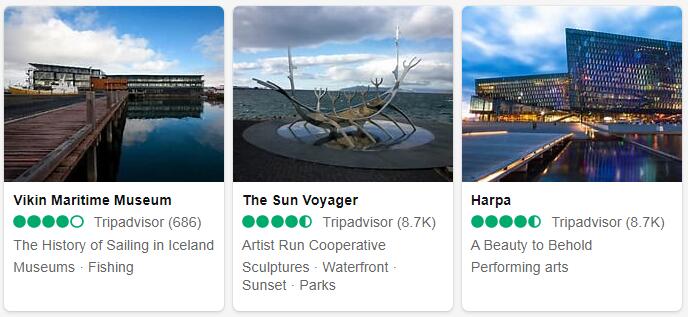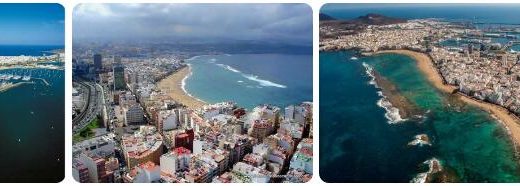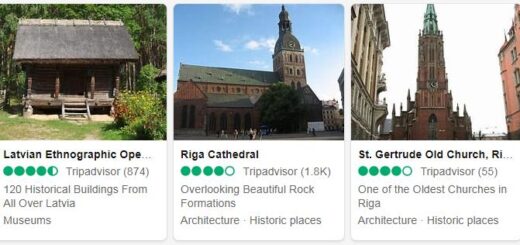Iceland 2018
The population of Iceland in 2018 was estimated to be around 340,000 people. The majority of the population is comprised of people of various ethnicities including Icelandic, Nordic, and Germanic. The economy is largely reliant on exports, manufacturing, services such as fishing and tourism, as well as the country’s abundant renewable energy resources. Foreign relations remain strong with Iceland’s neighbors in the North Atlantic as well as other countries in Europe and beyond. According to extrareference, Iceland has been a parliamentary republic since 1944. In 2018, Prime Minister Katrin Jakobsdottir was re-elected for a second consecutive term after her party won 34% of the popular vote in parliamentary elections held that year.
Yearbook 2018
Iceland. At the New Year, a law on equal pay went into effect. It prohibits employers from giving higher wages to men than to women for equal work. Companies with more than 25 employees are liable to fines if they cannot show equal pay. The law will be phased in for three years with the aim of wiping out the wage gap until 2020. According to the World Economic Forum, Iceland was the fifth best country in the world on equal pay between the sexes. Iceland was one of gender equality in terms of education, health, economic opportunities and political power.
In March, the Icelandic government decided to suspend all contacts with the Russian Federation at a high level after a Russian former spy and his daughter were poisoned with nerve gas in the UK. None of the Icelandic political leaders went to the World Cup in the Russian Federation, even though Iceland’s national team qualified for the World Cup playoffs for the first time.
- According to Abbreviationfinder: ISL is an three letter acronym for Iceland.
In April, the Icelandic hunt for herring was resumed after a few years’ rest. 146 whales are managed during the hunting season. Iceland’s left – right government is divided on the issue of future election hunting. Prime Minister Katrín Jakobsdóttir’s party The Left – The Greens want to stop the hunt, while the Independence Party and the Progress Party want to allow it.
According to Countryaah.com, Reykjavik is the capital city of Iceland, a country located in Northern Europe. Only six folding whales are handled during the year. The protection zone with a ban on whaling has been expanded and forced the whale hunters so far out to sea that the hunt for folding whales is no longer profitable. Therefore, this year’s hunt was interrupted.
In July, Iceland was elected to the United Nations Human Rights Council as a replacement for the United States after President Donald Trump’s government left the council.
During the summer, the centenary of Iceland was celebrated by the signing of the union agreement with Denmark, when Iceland gained far-reaching independence. But the party led to political quarrels since the Danish Parliament’s Speaker Pia Kjærsgaard was invited as speaker. Several politicians boycotted Kjærsgaard, and for the ceremony at the old town of Þingvellir, 300 people came in place of the 7,000 visitors, all counted.
In the prime minister’s party, the dissatisfaction was great with the compromises the party made in the coalition. The Left – The Greens had lost a lot in public opinion since the 2017 election and were around 10% during the fall. Government support had fallen from around 75% after taking office to below 50% a little over six months later.
In the first half of 2018, Iceland’s economy grew by just over 6%. This meant stable growth for the eighth consecutive year following the financial crisis. Unemployment had more than halved and was about 3%. The Government Offices had planned their annual party with entertainment for the employees until October 6, but when it was realized that the date coincided with the 10th anniversary of the outbreak of the banking and financial crisis in Iceland, the party was postponed in the future.
In September, the government presented a climate policy program to phase out fossil fuels. By 2030, Icelanders will no longer be able to register cars fueled with gasoline or diesel.
A report by the Minister of Tourism showed that several popular tourist destinations in the nature of Iceland do not tolerate more visitors environmentally. The minister said he would consider restrictions on access to certain places. Over 2 million tourists visit Iceland each year (area less than Lapland), and according to the report it is too much. At the same time, tourism is Iceland’s best source of income for foreign exchange and accounts for almost a tenth of the country’s GDP.



